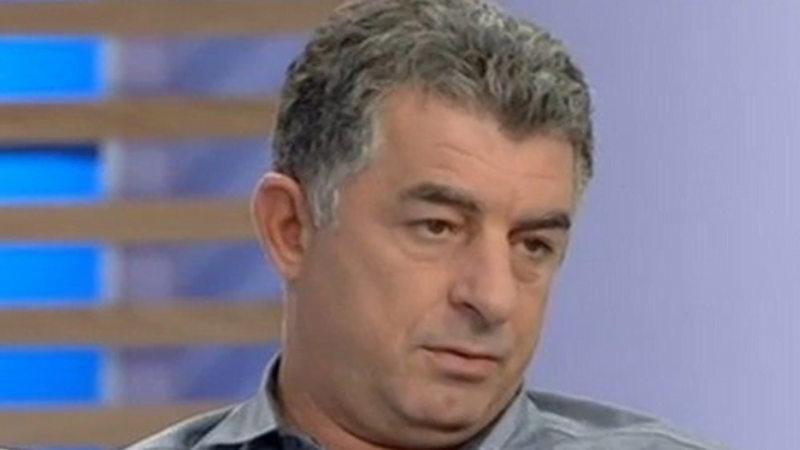The international human rights and media community has strongly condemned the murder of Greek investigative journalist George Karaivaz, amid calls for justice.
Media Freedom Rapid Response (MFRR) tweeted that the murder bears “all the hallmark of a planned ambush”.
We are deeply shocked following early reports that Giorgos Karaivaz has been shot outside his house in Athens, which bears the hallmarks of a planned ambush https://t.co/BCyERpycGR
— Media Freedom Rapid Response (MFRR) (@MediaFreedomEU) April 9, 2021
Karaivaz was killed outside his home in Athens yesterday, bringing the total number of slain journalists in the EU to five, in four years.
He was returning to his home in the Alimos suburb of the city when he was approached by a motorbike carrying two individuals. The passenger open fired on the veteran journalist, just after 2pm. Police said they recovered some 12 bullet cases from the scene.
The police told the media that “it was a professional hit”.
A spokesperson for the Greek government, Aristotelia Peloni, said: “The murder has shocked us all…the authorities are investigating the case to ensure the perpetrators are arrested and brought to justice.”
Authorities claim he had not reported any death threats or requested police protection, prior to his murder.
During his long career, Karaivaz worked for several Greek newspapers and television stations. He was renowned for reporting on crime and corruption scandals involving police, lawyers and powerful businessmen.
He was married with one child.
Vera Jourova, the Vice-President for Values and Transparency at the European Commission expressed her condolences, saying justice should be served.
I am deeply shocked following reports that journalist Giorgos Karaivaz was shot dead in Athens.
My thoughts are with his family and colleagues.#Justice should be served, and the safety of the journalists should be guaranteed. https://t.co/KCptmg1x0V— Věra Jourová (@VeraJourova) April 9, 2021
MEP David Casa said the murder continues to highlight the need for better protection of journalists in Europe. “Democracy receives a fatal blow every time a journalist is silenced in such a cruel manner.”
Shocking news from #Athens, as crime reporter #GiorgosKaraivaz is gunned down outside his home.
Journalist protection must become a priority, for every European nation and the EU itself. Democracy receives a fatal blow everytime a journalist is silenced in such a cruel manner. pic.twitter.com/OEmNhZuvvX
— David Casa (@DavidCasaMEP) April 9, 2021
This is the fifth murder of an investigative journalist in the EU since 2017 when Maltese investigative journalist Daphne Caruana Galizia was assassinated with a car bomb in Malta.
In February 2018, journalist Jan Kuciak and his fiancé were shot and killed at their home in Slovakia. Their murder caused widespread political unrest and resulted in the resignation of Prime Minister Robert Fico and his Cabinet.
Just over six months later, Bulgarian TV presenter Victoria Marinova was raped and murdered. Her work at the time of her death involved alleged misuse and corruption with EU funds involving politicians and powerful businessmen.
Then, in April 2019, journalist Lyra McKee was shot during unrest in Derry. Her work focused on the ongoing Troubles in Ireland and Northern Ireland, and she was shot after a gunman opened fire on police who had tried to raid some properties. A 52-year-old man was subsequently charged with her murder.
Attacks against journalists have been increasing throughout Europe over the last few years. Assault, intimidation, smear campaigns, vexatious lawsuits, and imprisonment are considered some of the biggest threats to media workers.
Subsequently, the United Nations declared journalism is “one of the most dangerous professions in the world”.
In the majority of cases, attacks, threats, and murders of media workers are not properly investigated, let alone solved.












